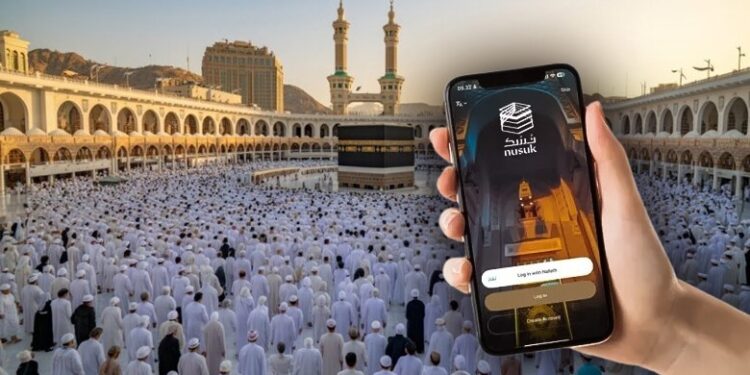Saudi Arabia just launched Nusuk Umrah, a digital platform that lets international pilgrims apply for Umrah visas and book their entire journey without travel agents. This eliminates middlemen and gives pilgrims direct control over their religious travel plans.
The Ministry of Hajj and Umrah unveiled this service on August 21, 2024, through the official website umrah.nusuk.sa. Pilgrims can now design custom packages or choose individual services, including visas, hotels, transport, and guided tours.
Digital Platform Supports Seven Languages
The Nusuk Umrah platform offers services in seven languages and connects directly with government systems. Pilgrims can pay through multiple options and track their applications from start to finish.
This digital approach replaces the traditional system where pilgrims had to work through licensed travel agencies. Now they access everything through one portal.
RELATED POST: Saudi Arabia Makes Hajj 2025 The Most High-Tech Pilgrimage Ever
Record Numbers Drive Platform Launch
Saudi Arabia hosted over 18.5 million pilgrims in 2024, with 16.9 million performing Umrah and 1.61 million completing Hajj. The kingdom plans to welcome 30 million Umrah pilgrims annually by 2030.
The first quarter of 2025 saw 15 million Umrah pilgrims alone, showing massive demand for religious tourism services. This pushed Saudi officials to create more efficient digital systems.
GCC Citizens Get Year-Round Access
Saudi Arabia expanded Umrah access for Gulf Cooperation Council citizens and residents in July 2024. They can now perform Umrah throughout the year using permits issued through the Nusuk app.
Eligible pilgrims use various visa types including Umrah visas from Nusuk, transit visas from Saudia Airlines and Flynas partnerships, and tourist visas through the Foreign Affairs Ministry portal.
Smart Technology Enhances Pilgrim Experience
The Nusuk super-app has exceeded 12 million downloads and operates in 14 languages. Pilgrims receive RFID-enabled smart cards containing personal, medical, and travel data.
Saudi Arabia deployed over 2,000 drones and AI-powered cameras during recent Hajj seasons. These systems connect to central control rooms using satellite imagery and predictive analytics to manage crowd flow in real-time.
The Mashair Metro now adjusts train schedules based on crowd density. In 2025, train intervals dropped by 60% during peak times to reduce platform congestion.
Infrastructure Projects Support Growth
Major construction projects prepare Saudi Arabia for increased pilgrim volumes. The $26.6 billion Masar Destination project in Makkah will add 24,000 hotel rooms and accommodate 158,000 additional pilgrims annually.
The King Salman International Airport in Riyadh will handle 120 million passengers by 2030, expanding to 185 million by 2050. The Haramain High-Speed Railway transported 70% of international Umrah pilgrims in 2025.
Platform Extends Beyond Basic Services
Nusuk Umrah connects pilgrims with cultural tours and extended stay options. The Ministry of Tourism encourages combining religious visits with trips to Jeddah’s Al-Balad, Taif, or Red Sea destinations.
This strategy will increase average stays from five to nine nights and boost per-capita spending above $1,000. The 96-hour transit visa program with complimentary hotel stays supports longer visits.
The new platform affirms Saudi Arabia’s intervention to modernize religious tourism while maintaining traditional pilgrimage values.














